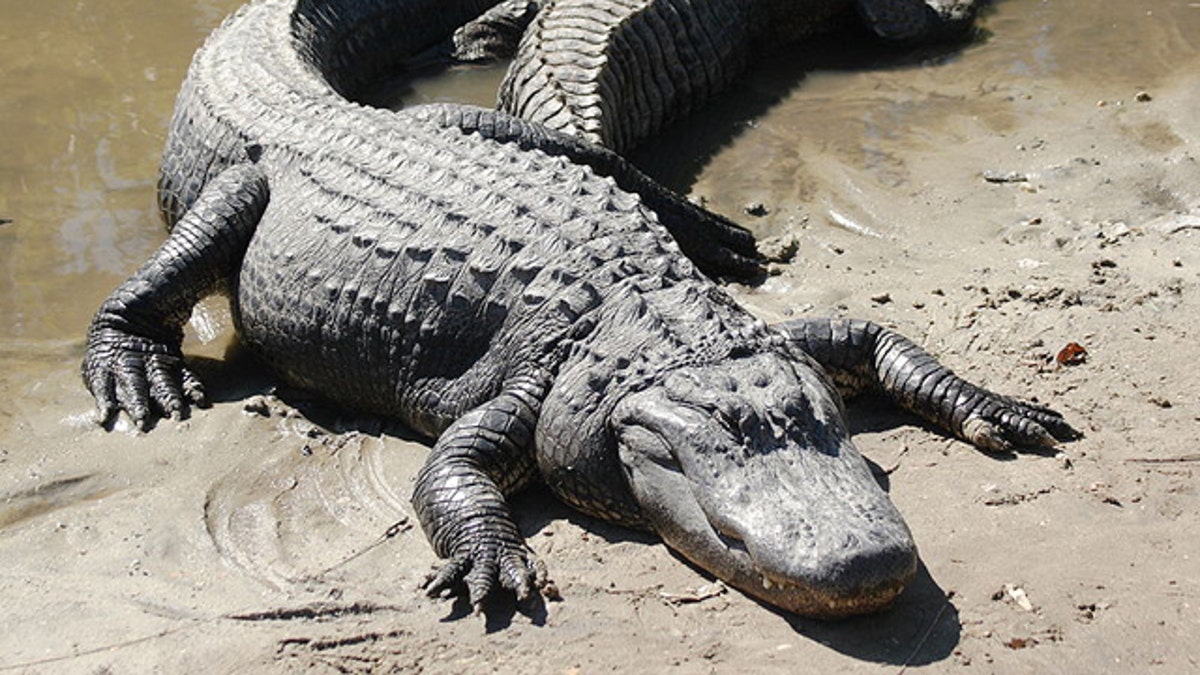
In 2007, an alligator at a Georgia gated community chewed up Gwyneth Williams' arms and foot. Her family members then proceeded to sue the community for damages. (Matthew Field / Wikipedia)
While humans must lather-up with protective sunscreen before heading out into the summer sun, a new study has determined why many animals that spend their lifetime outside are seemingly immune to the harmful effects ultraviolet rays may have on their skin.
Researchers at Oregon State University have found that various animal species found in the wild naturally produce their own sunscreen. In the study, published in the journal eLife, scientists observed that fish, amphibians, reptiles and birds produce a compound called gadusol, which helps to provide protection from the sun’s potentially harmful rays.
“Humans and mammals don’t have the ability to make this compound, but we’ve found that many other animal species do,” Taifo Mahmud, lead author and professor at OSU College of Pharmacy, said in a news release.
“The ability to make gadusol, which was first discovered in fish eggs, clearly has some evolutionary value to be found in so many species,” Mahmud said in the release. “We know it provides UV-B protection; it makes a pretty good sunscreen. But there may also be roles it plays as an antioxidant, in stress response, embryonic development and other functions.”
The researchers also found a way to naturally produce gadusol using yeast, which they say may open the door to develop it as an ingredient for different types of sunscreen products, cosmetics or pharmaceutical products.
Study authors also say the gene that allows vertebrate animals to produce gadusol is similar to one found in algea. It was been found in animals ranging from rainbow trout to the American alligator, green sea turtle and farmyard chickens. Researchers say more work is needed to better understand the importance of gadusol in animal physiology and ecology.








































